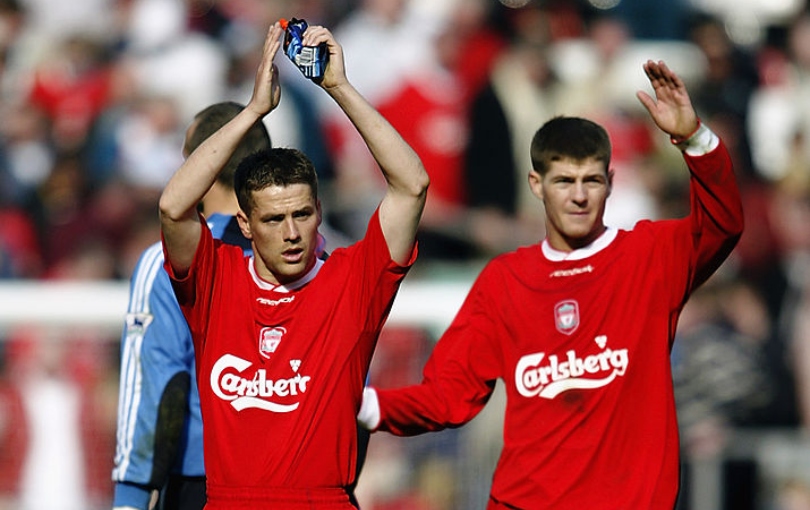Brazil 1-7 Germany, one year on: how humiliating defeat altered sporting, cultural and political landscapes
Mauricio Savarese and Marcus Alves describe the year following Brazil's unforgettable defeat to the eventual World Cup champions in Belo Horizonte...
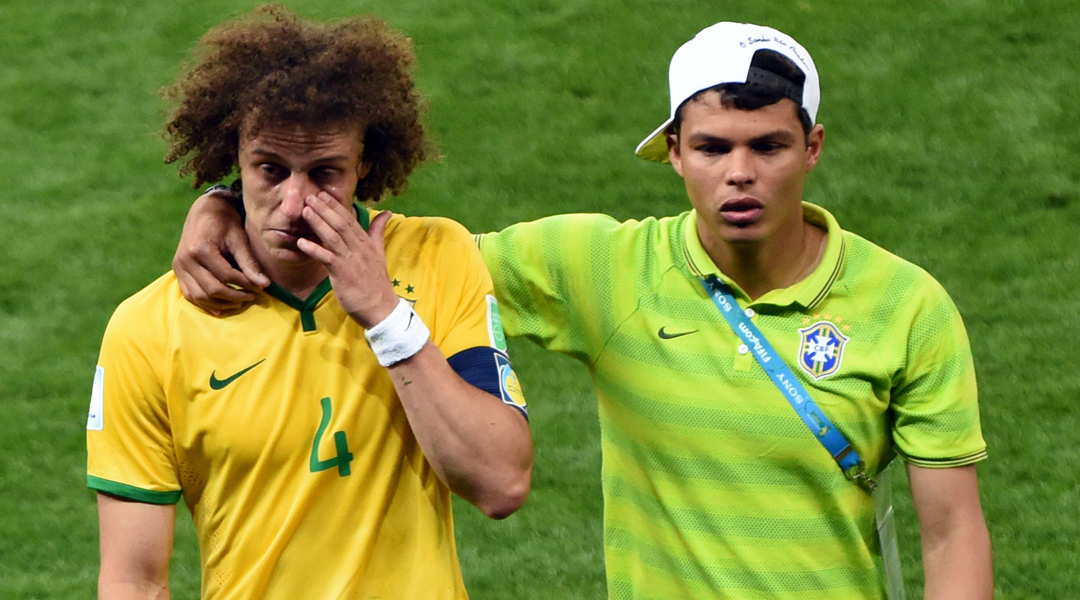
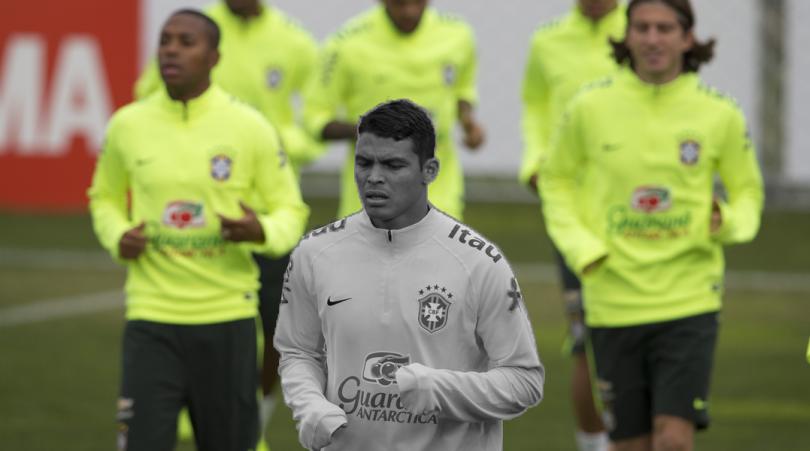
On the morning of July 8, 2014, at least three of Brazil’s squad woke up and told their colleagues how they had dreamed of scoring the winner against Germany in the World Cup semi-final. When Fred, David Luiz and Marcelo arose from their slumber 24 hours later, they felt more like they were living in a nightmare.
As the German goals rained in and the rest of the world began tweeting their predictions of riots and chaos on the streets of Recife and Rio, Brazilians instead spread self-deprecating memes, including one of the kid from The Sixth Sense with the caption: “I see Germany score all the time.” Unlike the 1950 Maracanazo, which was a national tragedy thought to symbolise Brazil’s failure as a people, the 2014 Mineirazo was seen by most as merely a tragicomic farce.
“…and Germany score again”
It would be false to claim the 7-1 hasn’t been taken seriously, but even some of the biggest cheeses in Brazilian football have dismissed it as a freak. “If we play 10 or 20 more times against Germany, we won’t lose like this,” scoffed Marco Polo Del Nero, president of the Brazilian FA (CBF). “A tactical error occurred.”
Not a day has gone by without the events at Belo Horizonte on that fateful night being mentioned on Brazilian television. That’s because whenever the CBF, the country’s president Dilma Rousseff or anybody else with any semblance of power makes a mistake, journalists, fans and the general public take joy in joking: “…and Germany score again.”
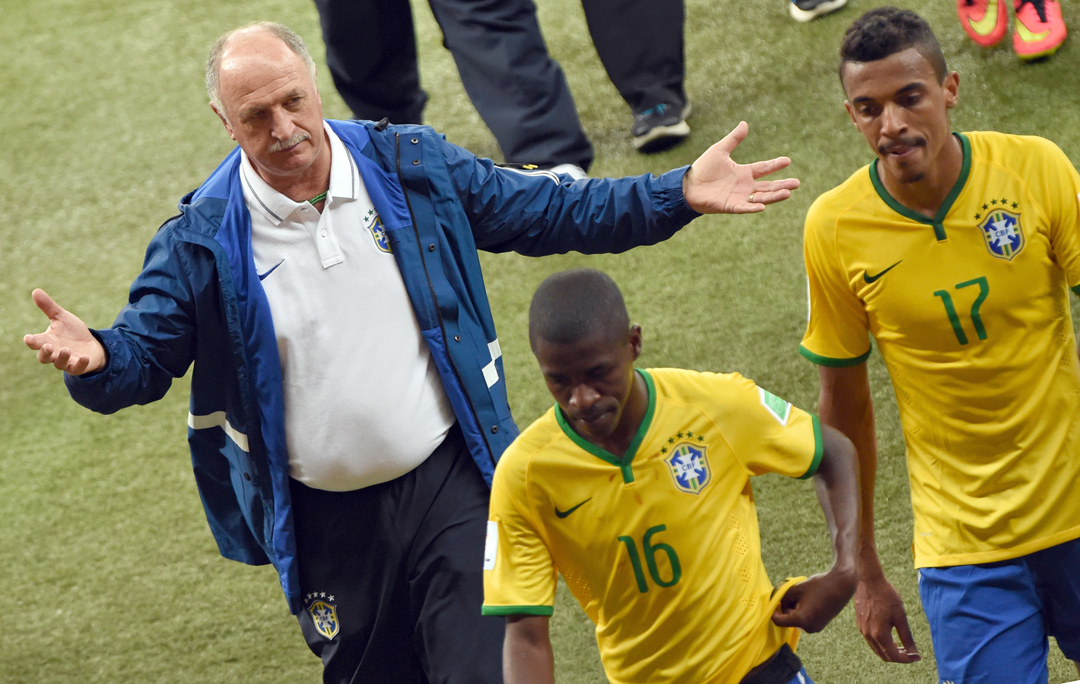
As the match’s first anniversary approaches, Brazilians know it's time to talk a little more seriously about the instantly infamous defeat, but feelings are still as mixed as they were at the time; some think Brazil has nothing left to offer the world game, others believe it is the perfect chance for a fresh start.
The latter was clearly what Delfim Padua Peixoto Filho was looking for. Speaking in the immediate aftermath of Brazil’s humbling, the CBF vice-president was quick to throw head coach Luiz Felipe Scolari under the bus. “Big Phil was too stubborn, from the naming of his squad to his tactical choices,” he grumbled. “And I tell you another thing – he should retire. He won’t be able to get any team in Brazilian football. He should pack his things and say goodbye.” In fact, he became Gremio manager exactly three weeks after the match.
Get FourFourTwo Newsletter
The best features, fun and footballing quizzes, straight to your inbox every week.
Dunga, Dante and Deutschland
If I’m playing like crap, feel free to complain, but only if it’s fair
Once Scolari had cleared his desk, polls revealed Pep Guardiola and Jose Mourinho as the most popular choices as his successor.
No surprises there, but with the CBF seemingly unwilling to hire a foreigner, they again looked to the past. In a bid to avoid being the butt of more jokes, they reappointed Dunga – a manager that experience told them wasn’t afraid to put defence first.
Dante, who was in Brazil’s starting XI for the semi, certainly seemed to be fed up of being a punchline. The Bayern Munich defender doesn’t feel he’s been taken seriously in Germany since the World Cup.
“If I’m playing like crap, feel free to complain, but only if it’s fair,” Dante told Bild earlier this year. “What’s happening to me is not fair. Since the semi-final, people give me less respect. I’m fully convinced that if I'd gone back [to Germany] as a champion, I would’ve been treated differently, even if I was playing exactly the same as I am now. Nobody considers that this can destroy my career.”

But if the 31-year-old is getting sick of the sight of all things German, then heading back home wouldn’t be the wisest of moves. In the 12 months since Brazil’s World Cup humiliation, there have been growing calls for the national game to undergo something of a ‘Germanification’.
A group of Brazilian businessmen asked Borussia Dortmund and Bayern whether they’d be interested in bringing their academies to Brazil; their offers were refused.
The CBF have contacted Double Pass, a Belgian football consultancy firm credited with revolutionising German youth football, while Atletico Paranaense have hired EXOS, the company that advises the German national team on training and nutrition.
Such is the newfound respect for the German game that players in the Brasileiro are now being renamed after Joachim Löw’s heroes. Flamengo’s Jonas is known as ‘Schweinsteiger do Nordeste’ (‘the Schweinsteiger of the Northeast’) while Almir is clumsily being called ‘Almiroslav Klose’, and Ceara’s Uillian Correia is now ‘Uillian Kroosreia’. Nobody was referring to Ronaldinho as ‘the buck-toothed Ballack’.
However, during the World Cup, the Germans were praised not only for their football but also for their humility; in particular, the way they embraced the small village of Santo Andre where they were based and built their bespoke training camp. They set new standards for how Brazilian players should behave towards fans and the general public. It was noted that Neymar and his colleagues mustered 112 shots during their seven World Cup matches, but shared a combined 533 shots on Instagram during the tournament.
Bye-bye Joga Bonito?
So, with one eye on keeping his players grounded, Dunga and his new coaching staff have thrown down a new rulebook that forbids the players from (among other things) wearing caps, sandals or earrings when they’re with the national team.
A quarter-final Copa America defeat to Paraguay on penalties summarised a dismal tournament in which the team never moved out of second gear
The use of phones, iPads and laptops is restricted while the players are together, and they can’t leave the table until everyone finishes their meal. They can’t speak about politics or religion, and must sing the anthem before matches – one thing they did at least manage to do at the World Cup.
Football is still the No.1 sport in the country, even if surfing has grown in popularity since Sao Paulo-born board-botherer Gabriel Medina won the world title in 2014, but all work and no play is making Brazil a dull boy. After the Mineirazo, the Seleção seem to be less popular than ever, at least on their own patch.
Searching for that old swagger would at least have got the punters dreaming of a potential return to the glory days when Brazil were both the best and most entertaining team on the planet, but the CBF are openly more concerned with immediate results.
At first they weren't disappointed on that front – Brazil beat both Argentina and France – but a quarter-final Copa America defeat to Paraguay on penalties summarised a dismal tournament in which the team never moved out of second gear.
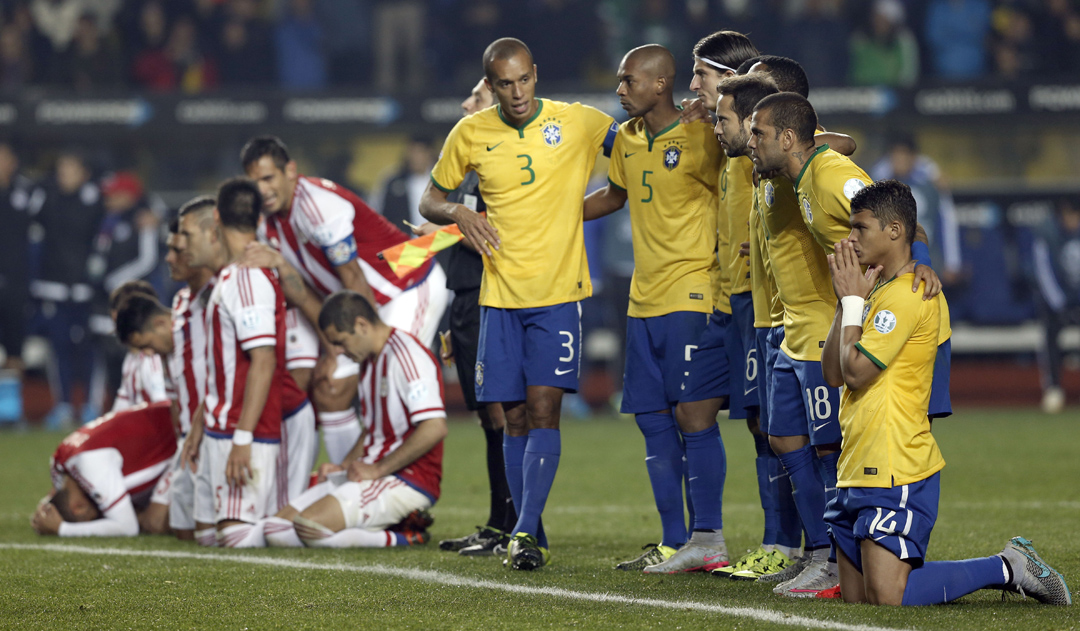
Results off the pitch haven’t been pleasing either: TV ratings for Brazil matches have been low, the famous yellow shirt is seen in advertisements less regularly than it used to be, and fewer and fewer of them sell.
Recent political campaigns, usually be desperate to cash in on the organisational success of the World Cup, avoided all mention of it so as to not remind the nation of the 7-1. Campaign managers have admitted as much, although they will also have been thinking of the tournament’s whopping £9 billion price tag.
Though there have been no signs of the loss damaging the domestic economy, The Financial Times highlighted that the country was suffering “another 7-1 defeat”, with seven per cent annual inflation and one per cent growth.
Brazil may be ready to joke about their most momentous defeat, and Dunga’s team may have won eight games in a row before the Copa America, but the team – not to mention the nation – still have plenty of work to do before they can fully rediscover that old Joga Bonito.
This feature originally appeared in the July 2015 issue of FourFourTwo. Subscribe!
Joe was the Deputy Editor at FourFourTwo until 2022, having risen through the FFT academy and been on the brand since 2013 in various capacities.
By weekend and frustrating midweek night he is a Leicester City fan, and in 2020 co-wrote the autobiography of former Foxes winger Matt Piper – subsequently listed for both the Telegraph and William Hill Sports Book of the Year awards.

